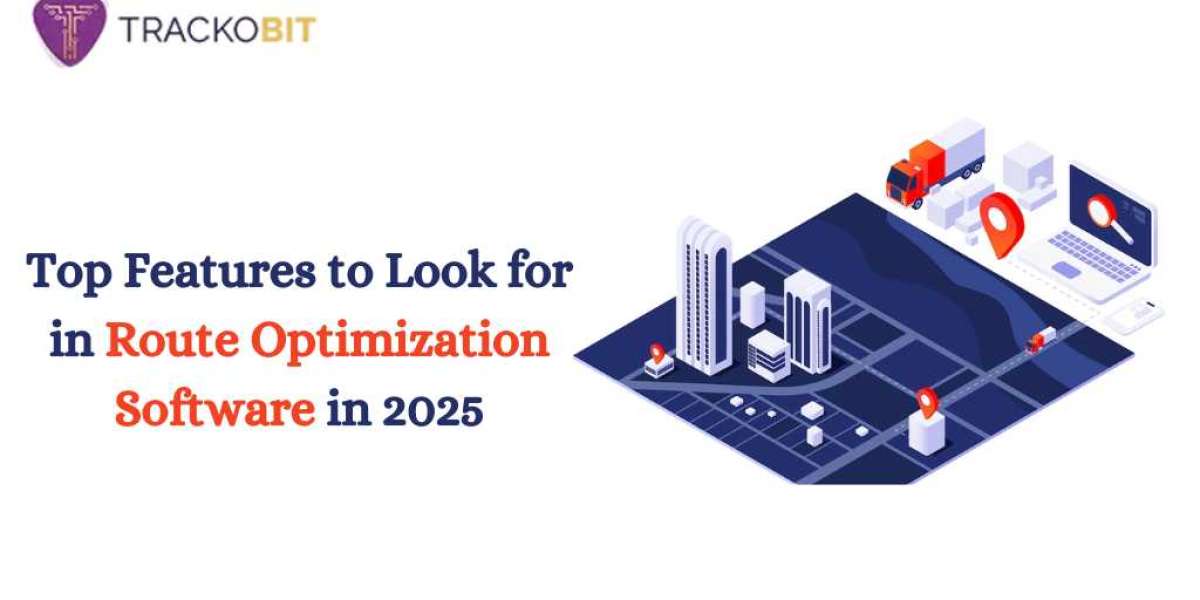Taking care of a fleet of vehicles is not that simple! Especially for businesses handling multiple fleets at the same time. Imagine the chaos a manager faces when vehicles are constantly on the move.
The drivers have their own challenges too, like selecting the right route or ensuring timely deliveries. It is because a wrong route doesn't just waste time. But it also costs businesses a large amount of money. This way, it increases fuel expenses, delays shipments, and frustrates customers. That's why many companies have started using route optimization software.
If you’re unaware, this tool ensures smooth operations and saves businesses from avoidable losses. But how to get the best one?
Are you looking to choose the best Route Optimization Software? If so, explore these essential features before making your decision.
What Is Route Optimization Software?
Route optimization software is designed to find the most efficient routes for delivery vehicles. It is much more than just simple route planning.
Unlike manual planning, it uses advanced algorithms to process multiple variables such as traffic, weather, vehicle capacity, and delivery priorities. This helps businesses boost their efficiency and lessen operational costs.
The software continuously learns and adapts to real-world conditions. It can reroute drivers in real-time to avoid unexpected delays. This ultimately ensures faster deliveries and higher customer satisfaction.
Moreover, it considers business-specific requirements like time slots, multi-drop deliveries, and vehicle types.
This software is not just about logistics. It provides businesses with actionable insights to improve their overall delivery strategy. With shipment tracking software solutions integrated, managers can monitor their fleets and gain complete visibility into operations.
Why Does Your Company Need Route Optimization Software?
If your company hasn't yet invested in route optimization solutions, here's what you might be missing out on:
- Higher Operational Costs: Without the right software, your drivers may take longer routes. This leads to increased fuel consumption and higher vehicle maintenance costs.
- Wasted Time: Manual planning consumes a lot of time. Managers often end up juggling multiple tasks, which reduces their productivity.
- Inefficient Deliveries: Late deliveries harm your brand's reputation. Customers expect on-time deliveries, and failing to meet these expectations can lead to dissatisfaction and lost business.
- Lack of Visibility: Manual processes often leave managers blind to what's happening on the road. You cannot track shipments in real time or reroute vehicles when delays occur.
- Driver Fatigue: Drivers without proper routing face increased stress and fatigue. This reduces their efficiency and increases the likelihood of errors.
With route optimization for logistics, you can address all these challenges effectively. The right software can help your business save time and deliver a superior customer experience.
5 Must-Have Features of Advanced Route Optimization Software
When choosing route optimization software, ensure it offers these necessary features.
These will keep your operations efficient and future-ready.
- Optimized Load and Capacity Planning
A good route optimization tool should excel at managing the capacity of each vehicle. This means it considers various factors such as carrier volume, package dimensions, and delivery time slots.
For instance:
- Carrier Capacity Analysis: The software evaluates the available space in each vehicle and distributes consignments accordingly. This avoids underloading or overloading.
- Time Slot Selection: The system identifies the most suitable time slots for deliveries, considering traffic patterns and customer availability.
By ensuring optimal capacity utilization, this feature reduces the number of trips required and maximizes efficiency.
- Efficient Driver and Fleet Scheduling
Managing driver schedules manually is a time-consuming task. Advanced route optimization solutions simplify this with robust rider roster management.
Here's how:
- Automated Scheduling: The software creates an efficient roster based on delivery priorities, driver availability, and workload.
- Calendar View: A user-friendly calendar interface allows managers to view schedules at a glance. It also makes rescheduling easy during last-minute changes.
This feature improves driver satisfaction and ensures smoother fleet operations.
- Smart Delivery Allocation System
Delivery allocation is a critical part of logistics. An intelligent software allocates orders to the right vehicles and drivers based on several parameters.
Key features include:
- Automated Trip Assignment: The software matches deliveries to vehicles based on location, load, and route efficiency.
- Maximizing Vehicle Utilisation: It ensures each vehicle is utilized to its full potential without overburdening drivers.
This leads to faster deliveries, better resource management, and happier customers.
- Real-Time Route Optimization
Modern logistics require flexibility. Real-time routing algorithms are essential to handle unexpected changes such as traffic jams, road closures, or weather disruptions.
Key features include:
- Dynamic Updates: The software constantly recalculates routes in real-time, ensuring drivers always follow the fastest and safest path.
- Accurate ETAs: Advanced algorithms ensure that the estimated time of arrival is close to the actual time. This improves delivery reliability and customer trust.
This feature eliminates inefficiencies and reduces the risk of delays, giving your business a competitive edge.
- Adaptable Geocoding and Ad-Hoc Delivery Management
Your software should be able to handle dynamic delivery requirements. Businesses often need to add stops or make changes on the go.
Here's what it should offer:
- Dynamic Geocoding: The software translates addresses into precise coordinates, making it easier for drivers to navigate to exact locations.
- Ad-Hoc Deliveries: Managers can add or modify delivery tasks without disrupting the entire schedule. This ensures flexibility and responsiveness.
This feature is especially useful for businesses dealing with last-mile deliveries.
To Sum Up!
Choosing the right route optimization software is a key decision for any business managing logistics. And thus, the features mentioned above are essential.
If you're searching for the best solution, consider exploring our TrackoMile. While many software offers basic route planning, TrackoMile is distinct.
Investing in the right software can smoothen your operations and give you an edge in the industry. Hope this article helps.
Source: Top Features to Look for in Route Optimization Software in 2025







